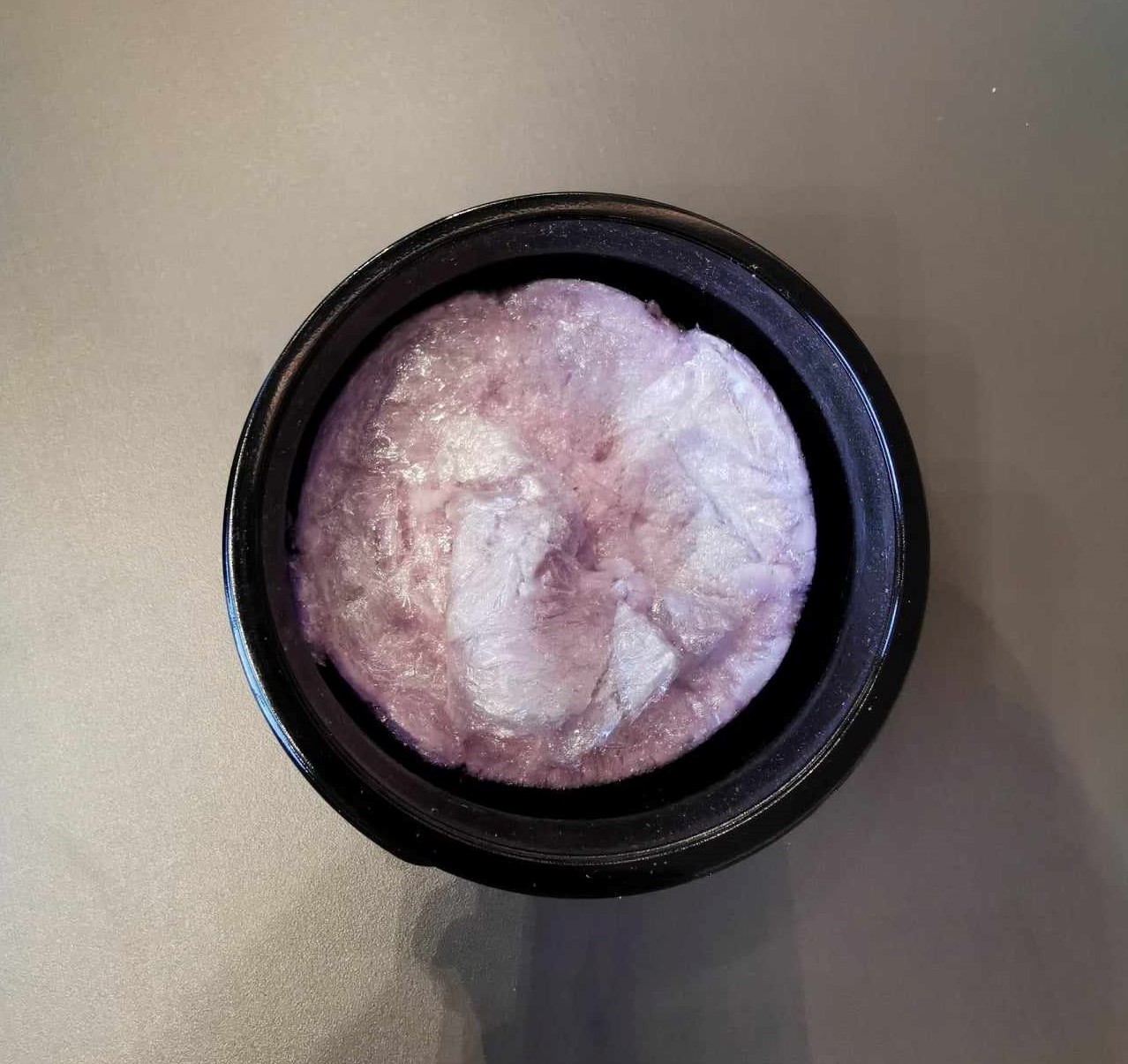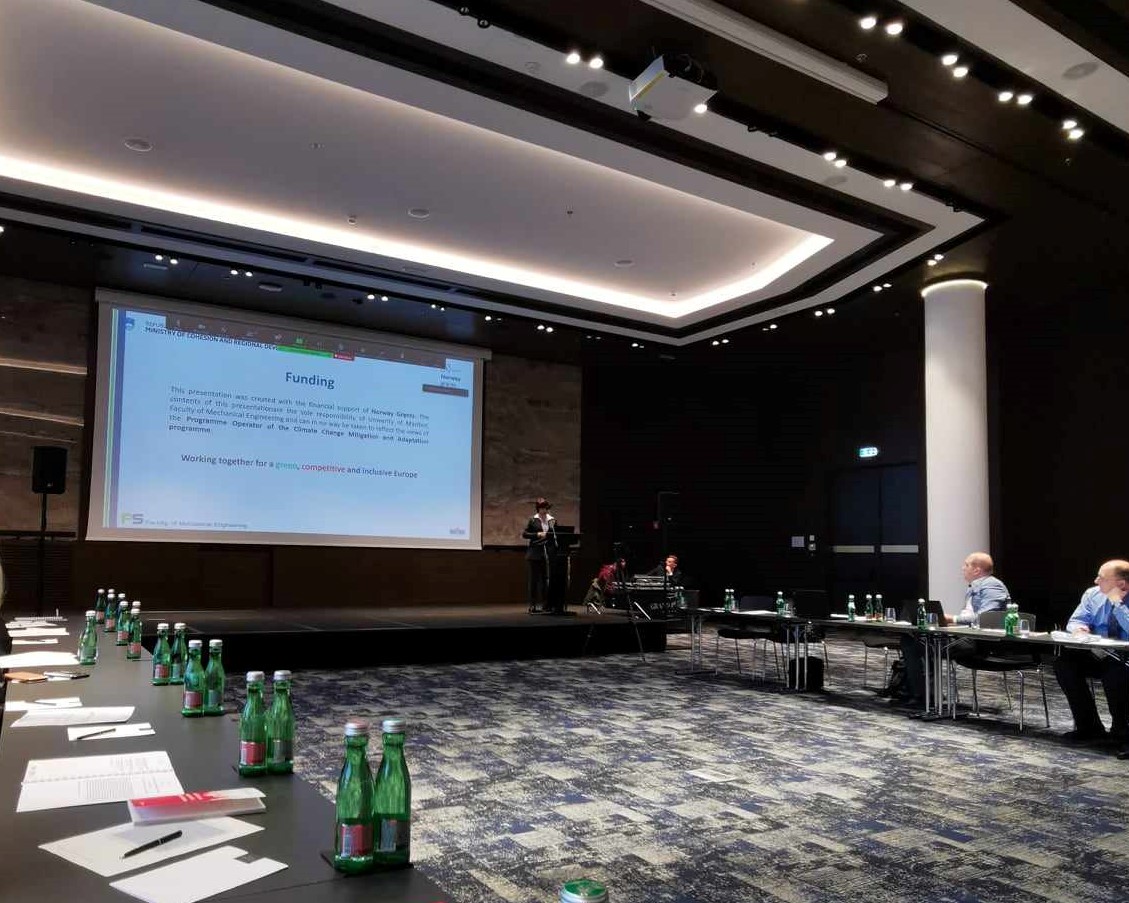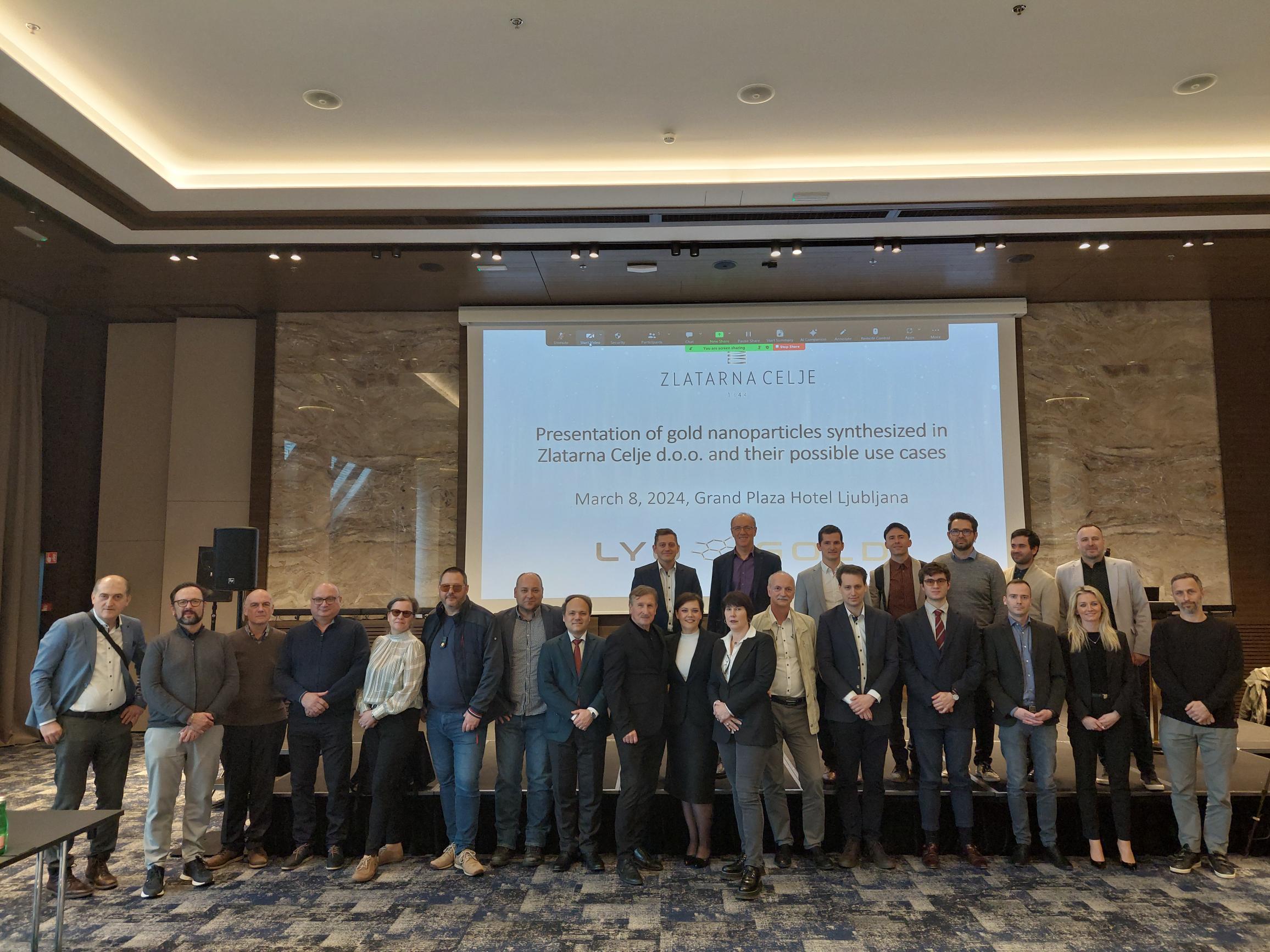
11 March 2024 – A symposium entitled Gold Nanoparticles Synthesised in Zlatarna Celje and Their Possible Applications took place on Friday, 8 March 2024, within the framework of the LFIA-REC project, supported by the Norway Grants.
The LFIA-REC project is developing recycling options for plastics and nano-gold, which are components of rapid antigen tests (COVID-19).
Setting the stage, the CEO of Zlatarna Celje, Bojan Albreht, shared with the audience insights into the collaborative development of gold nanoparticles, which, owing to their chemical and optical properties, boast a vast spectrum of applications.

The guest speaker, Assoc. Prof. Sergej Tomić, PhD from the Institute for Applied Nuclear Energy at the University of Belgrade, delved into groundbreaking research on the correlation between gold nanoparticle size and immunological response. Extensive studies have revealed how immunological responses vary depending on the size of the gold nanoparticles. These nanoparticles exhibit remarkable physicochemical properties, holding potential in theragnostic approaches to cancer and immunological diseases. The findings underscored the pivotal role of gold nanoparticles, highlighting promise in tailored therapies based on size specifications.
Representing the project promoter, the Faculty of Mechanical Engineering, University of Maribor, Jelen Žiga, MSc explained the intricate process of synthesizing gold nanoparticles through ultrasonic spray pyrolysis. As an intriguing observation, he noted that smaller gold nanoparticles appear red, while larger ones exhibit a purple hue. Expanding on the discussion, Assist. Prof. Peter Majerič, PhD presented the potential applications of gold nanoparticles in electronics and other industries. Due to their excellent electrical conductivity, gold nanoparticles offer various potential applications in electronics, additionally, they are also useful in cosmetics, pharmaceuticals, aerospace, healthcare, and technology development.

The project team leader, Prof. Rebeka Rudolf, PhD from the Faculty of Mechanical Engineering, University of Maribor, revealed research exploring the melting temperatures of gold nanoparticles. Unlike ordinary gold, gold nanoparticles exhibit distinct physicochemical properties, including significantly lower melting points – often tens or even hundreds of degrees lower. Experimental studies were conducted to determine the melting point of gold nanoparticles synthesized via ultrasonic spray pyrolysis and lyophilization, which were then compared with those of conventional gold.
Danica Popović Antić, DMD, PhD from the Faculty of Dentistry, University of Belgrade, introduced the beneficial properties of gold nanoparticles for enhancing dentures, emphasising their antibacterial characteristics. Matej Zadravec, PhD from the Faculty of Mechanical Engineering, University of Maribor elaborated on the advantages of dry gold nanoparticles obtained through lyophilisation.
Assoc. Prof. Dr. Martin Rakuša, MD. from the University Medical Centre Maribor, discussed the utilisation of gold nanoparticles in Alzheimer’s disease diagnosis. Emphasizing the importance of timely diagnosis for successful treatment, he highlighted the potential of gold nanoparticles in detecting proteins associated with Alzheimer’s disease, a condition affecting 1 in 9 individuals over 65 years of age.

The synthesis of gold nanoparticles from various waste materials was presented by guest speaker Assoc. Prof. Srećko Stopić, PhD from the Institute IME Process Metallurgy and Metal Recycling at RWTH Aachen University. He highlighted the substantial potential of electronic and other waste products for the recycling and recovery of gold nanoparticles.
In conclusion, the symposium provided a comprehensive overview of the remarkable properties and diverse applications of gold nanoparticles, marking a significant milestone in advancing research and innovation in this emerging field.
In addition to the project promoter the University of Maribor, other participating entities include Plastika Skaza, the Faculty of Polymer Technology, the Institute of Metals and Technology, Zlatarna Celje, the University Medical Centre Maribor and Surovina, the Waste Processing Company.
Source: Zlatarna Celje in Fakulteta za strojništvo, Univerza v Mariboru